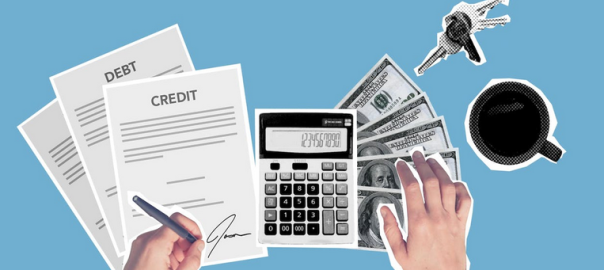
Most people think of credit scores as a simple number that decides whether they get approved for a loan. In reality, it’s more like a quiet but powerful negotiator sitting at the table every time you borrow money. That number doesn’t just whisper “yes” or “no” to banks—it heavily influences how expensive your borrowing will be. When you’re dealing with things like debt consolidation, mortgages, or even car loans, the interest rate you’re offered is directly tied to the story your credit score tells about you.
Imagine two people walking into a bank on the same day, both applying for a loan. They’re asking for the same amount, but one has a credit score of 780 and the other has a 620. The bank doesn’t see them as equals. The person with the higher score is seen as a safer bet, someone who will probably pay on time. That trust is rewarded with a lower interest rate. For the person with the lower score, borrowing becomes much more expensive, sometimes to the point where paying back the loan feels like running uphill in heavy boots.
It’s easy to underestimate how much interest adds up. Let’s say you borrow $10,000. With a good credit score, you might get an interest rate of 6 percent, but with weaker credit, it could climb to 18 percent or higher. Over a few years, the difference could be thousands of dollars—money that could have gone toward savings, paying off other debt, or just giving you breathing room in your budget. Your credit score doesn’t just affect approval; it shapes the very cost of your financial choices.
What often gets overlooked is how your credit score can expand—or limit—your financial flexibility. A strong credit profile doesn’t only mean lower rates; it means you have more options. Want to refinance your home when interest rates dip? With good credit, that door is open. Thinking of taking a personal loan to invest in a new business idea? You’ll have choices on lenders and terms. On the other hand, a lower score boxes you in, sometimes leaving you with only high-cost options or none at all. It’s like having a smaller toolbox when you’re trying to build a future.
High interest rates don’t just hit your wallet once—they ripple through your financial life. Paying more interest can slow down debt payoff, making it harder to save, invest, or handle unexpected expenses. For some people, the extra costs lead to taking on more credit just to stay afloat, which then feeds back into their credit score if they fall behind. The cycle can be exhausting and expensive. Meanwhile, those with stronger credit find it easier to get ahead, not because they’re working harder, but because their money isn’t being drained by higher rates.
Credit scores and interest rates aren’t just about big purchases like homes or cars. They also shape everyday financial products. Credit card offers, for example, are heavily influenced by your score. Someone with excellent credit might get offers with zero percent introductory rates or low ongoing rates, while others may be stuck with cards that charge 20 percent or more. Even small differences in daily borrowing costs change how much financial breathing room you have. The better your credit, the more your money works for you instead of against you.
If your credit score isn’t where you want it to be, the good news is that it can be improved. Paying bills on time, keeping credit card balances low, and being mindful about new credit applications all move the needle in the right direction. Think of credit improvement as an investment in lowering your future borrowing costs. A few months of disciplined financial habits could save you thousands in interest down the road. It’s one of the rare areas of personal finance where small, consistent actions make a massive difference.
At the end of the day, your credit score acts like a financial filter. It decides not just what loans you can access, but how affordable they’ll be. By maintaining strong credit, you’re essentially lowering the invisible price tag attached to borrowing. That means more of your money stays in your pocket, giving you freedom to make choices that support your goals instead of limiting them. In other words, credit doesn’t just open doors—it determines how much you’ll pay to walk through them.

This post has been authored and published by one of our premium contributors, who are experts in their fields. They bring high-quality, well-researched content that adds significant value to our platform.



